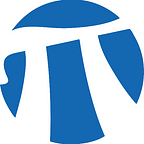All things Quantum. Meet our PIMS PDF at the University of Calgary, Thomas Theurer.
By Ruth A. Situma, Programs and Communications Manager
Thomas Theurer is not new to Canada. A native of Germany, he visited Canada twice- the first on vacation and the second for a conference at the Banff International Research Institute. (He had three days to book his flights, secure accommodation, and bolt across the Atlantic to Calgary to get to the conference on time). This second visit seemed to have been a down-payment on his future success: it is here where he first heard of PIMS and also what made him decide to pursue a postdoctoral tenure at the University of Calgary, with his supervisor, Gilad Gour and Carlo Maria Scandolo (another former PIMS PDF).
Thomas has been quietly doing his research since June when he made his move from Ulm University where he obtained his Ph.D. Currently, working from home may take a back seat as the University of Calgary opens fully to students this fall. Teaching and supervisory work will begin at a later point, but he is quickly readying himself for the blast of meetings, seminars, and talks that he will have to give as a new postdoctoral scholar. Here are edited excerpts from our interview.
Tell us about your research, how you got into your field, Quantum resources, and who you currently work with.
In 2011, I started to study physics at Ulm University in Germany and noticed relatively quickly that I enjoyed the mathematics lectures the most. I was even thinking about changing my subject, but in the end, decided to stick with theoretical physics instead. Since Ulm University has a strong focus on quantum physics, I naturally ended up choosing “quantum computation and quantum information” as the main topic of my master's studies. For my master thesis, I got the opportunity to work in the group of Martin B. Plenio and afterward continued with a Ph.D. in the same group. My research was and is mainly focused on quantum resource theories. Essentially, such theories aim at a mathematically rigorous description of quantum advantages, e.g., in cryptography, meteorology, computation, and sensing. I started with resource theories that describe the value of superposition and quantum coherence present in states and then developed some of the first resource theories that describe the value of operations instead, which is favorable for several reasons. One of them is that in order to solve a task, whether this is factoring or sending a message securely, we need to do something, i.e., apply an operation. Therefore, it seems more natural to investigate the value of operations directly: to solve a task, a resource present in a quantum state always needs to be converted into a resourceful operation first.
In a proof of principle, we showed that these theories are applicable to actual experiments with many degrees of freedom and recently, these theories allowed us to describe the advantage that coherence grants in interferometry. After my Ph.D., I joined Gilad Gour and Carlo Maria Scandolo in Calgary, who are amongst the leading experts in quantum resource theories too. I will continue working on resource theories but broaden my focus from coherence to other quantum resources. Moreover, we intend to link the rather abstract framework to more concrete applications.
What do you do outside of research to avoid burnout, or to balance your work and social life?
Outside of research, I am reading a lot (and relatively random things ;) and doing sports, i.e., running, basketball, biking, hiking. Calgary is a great place for that. My best discovery so far is how green the city actually is. When I was here for my talk at BIRS, I only saw the inner city and the airport, so I was not aware of how many beautiful parks there actually are. Nosehill is great for running, and I enjoyed the parks along the river, where I spent quite some time when it was hot!
You cannot change the past, but what are you most looking forward to this year?
I am really looking forward to four things: collaborating with my new group’s members, enjoying the rocky mountains, learning new mathematical tools and applying them to physics, and hopefully returning to a more normal life with team sports, group meetings, in-person discussions, and no more zoom!
Thomas Theurer will be speaking at the PIMS Emergent Research Seminar Series, October 27 2021 at 9:30 AM Pacific. Details on his talk (Quantum operations as resources) can be found here.
